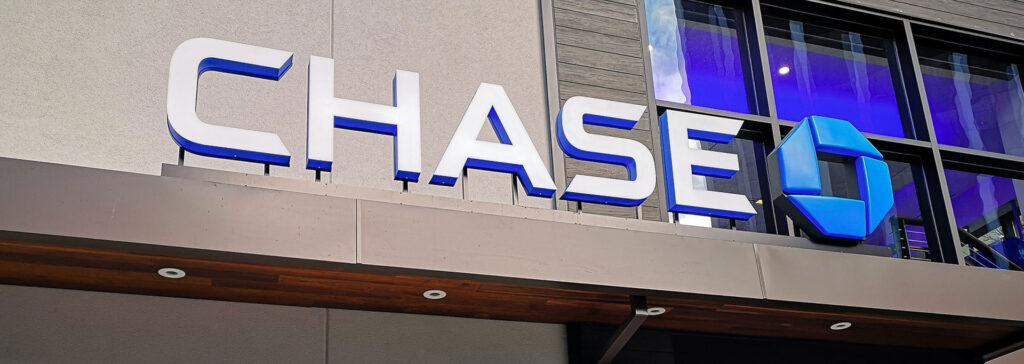Most products on this page are from partners who may compensate us. This may influence which products we write about and where and how they appear on the page. However, opinions expressed here are the author's alone, not those of any bank, credit card issuer, airline or hotel chain. This page may include information about American Express products currently unavailable on Slickdeals. American Express is not a partner of Slickdeals.
IRA CDs are similar to traditional CDs, except they allow you to grow your retirement account instead of savings. They are a good option for individuals close to retirement looking for a low-risk way to boost their retirement savings.
IRA CDs carry the same benefits, restrictions and tax implications as other IRA accounts. We're here to help you learn more about IRA CDs, how they work and what to look for in a CD to determine if opening one is the right move for you.
What Is an IRA CD?
An IRA CD is an individual retirement account (IRA) where investment funds are held in a CD account. IRA CDs come with fixed rates, so they don't rise and fall with changes in the market. Instead, IRA CDs offer guaranteed returns, unlike investing in stocks, bonds and ETFs. IRA CD terms range from three months to 10 years but can vary depending on the financial institution. Banks generally offer higher rates for CDs than other deposit accounts in exchange for leaving CD funds untouched for a set amount of time.
Funds in an IRA CD are meant to go towards retirement. Depending on the type of IRA, there may be tax deferrals on the interest earned on the account.
How Do IRA CDs Work?
IRA CDs and traditional CDs operate almost identically. IRA CDs come in various CD term lengths. Money is deposited into the account for a set amount of time, earning interest based on a fixed rate. You are subject to an early withdrawal penalty if you withdraw money before the maturity date. Penalties vary and are determined by the financial institution, typically based on your CD term.
Instead of funding the account through another bank account, IRA CDs are funded through an IRA or other retirement account. When a CD matures, you typically have a 10-day grace period to renew the CD, move those funds to a new CD or withdraw the funds penalty-free. With IRA CDs, you can roll over IRA CD funds into another IRA or retirement account, renew the CD and continue earning interest or withdraw the funds.
IRA CDs carry the same restrictions as other IRA accounts. Tax obligations depend on the type of IRA you have. Withdrawals from an IRA account before the age of 59 ½ are subject to an additional 10% tax penalty, except in certain circumstances such as job loss, paying for higher education or unexpected hardships.
IRA CDs are subject to annual contribution limits like any IRA. In 2023, the contribution limit is $6,500 annually or $7,500 for individuals age 50 and older.
IRA CD Pros and Cons
IRA CDs offer many benefits for individuals closer to retirement, but they may not be suitable for everyone. Consider the following pros and cons when deciding whether to open an IRA CD.
Pros
- Tax-free growth: IRA CDs carry the same tax advantages as other IRAs.
- Guaranteed returns: IRA CDs come with fixed interest rates, guaranteeing you a specific return on your investment over the CD term.
- Low-risk: IRA CDs are generally considered less risky than other investment types because of their fixed rates.
- FDIC-insured: IRA CDs through banks are FDIC-insured up to legal limits, while accounts at credit unions are insured by the National Credit Union Administration (NCUA).
- FDIC-insured: IRA CDs through banks are FDIC-insured up to legal limits, while accounts at credit unions are insured by the National Credit Union Administration (NCUA).
- Flexible terms: You can find IRA CD terms as short as a month or up to 10 years, depending on the bank or credit union.
Cons
- Low ceiling: IRA CDs typically earn lower yields than stocks, bonds and other investment types. You could lose out on big returns keeping your money locked up in a CD.
- Withdrawal penalties: Banks and credit unions charge early withdrawal penalties for pulling funds from a CD account before it reaches maturity.
- Contribution limits: IRA CDs are subject to the same contribution limits as other IRA accounts.
- FDIC-insured: IRA CDs through banks are FDIC-insured up to legal limits, while accounts at credit unions are insured by the National Credit Union Administration (NCUA).
- Flexible terms: You can find IRA CD terms as short as a month or up to 10 years, depending on the bank or credit union.
Choosing an IRA CD
Not all IRA CDs are created equal. Consider the following factors when choosing a CD.
- Retirement goals: Consider how much time there is before your retirement target date. IRA CDs are generally better for people closer to retirement because they carry lower risks than other investments.
- APY: The APY will determine how much interest you will make on the account. Online banks generally offer higher interest rates than traditional brick-and-mortar banks because of fewer overhead costs like maintaining physical branches and staff.
- CD term length: Along with the APY, the total interest earned on a CD is determined by how long the CD term lasts. Your money is locked up in a CD for the length of the term unless you pay a penalty. Choose a CD term that aligns with your retirement time horizon and goals.
- Penalties: Banks and credit unions charge a penalty for withdrawing money from a CD before it reaches maturity. Early withdrawal penalties are typically a portion of the interest earned on the account, often based on the CD term length.
Explore the Best CD Rates
Visit the Marketplace
Top IRA CDs to Consider
Shop around to find the best rates and terms to fit your retirement goals. Here are some of our top picks for IRA CDs right now.
Ally Bank
Ally offers several IRA High Yield CD terms ranging from three months to five years. CD rates range from 2.00% to 5.00% APY, depending on the CD term. No minimum deposit is required to open an Ally IRA High Yield CD.
Discover
Discover offers IRA CDs terms ranging from three months to 10 years. The bank offers guaranteed returns with competitive rates ranging from 2.00% to 4.30% APY. You can open an IRA CD through Discover with a $2,500 minimum deposit.
Alliant Credit Union
Alliant Credit Union IRA certificates offer competitive rates of up to 4.75% APY, with terms from 12 to 60 months. CDs require a $1,000 minimum deposit to open. You must be a member of the credit union to open an IRA certificate.
Synchrony Bank
Synchrony Bank IRA CDs carry no minimum balance requirements and are available in terms ranging from three months to 60 months. The online bank also offers an 11-month no-penalty CD and a 24-month bump-up CD for more flexibility. IRA CD rates range from 2.25% to 4.60% APY.
PenFed
PenFed members can open IRA certificates in terms ranging from one year to seven years. The credit union offers competitive rates from 3.75% to 4.50% APY. Certificates require a $1,000 minimum deposit to open.
Individuals with a low-risk tolerance or close to retirement and looking for guaranteed returns are prime candidates for IRA CDs. The tax advantages and fixed rates can bolster your retirement savings. Determine your needs, analyze your financial situation and consider IRA contribution limits to determine if opening an IRA CD is right for you.







